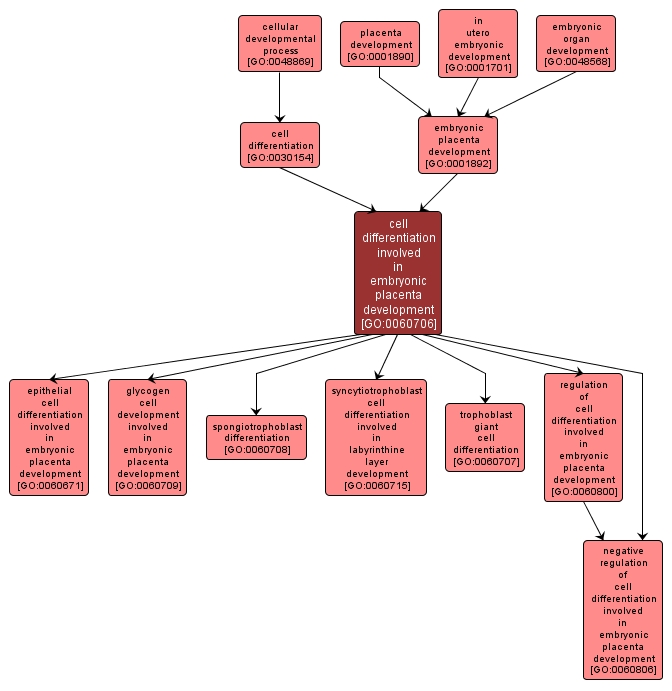GO TERM SUMMARY
|
| Name: |
cell differentiation involved in embryonic placenta development |
| Acc: |
GO:0060706 |
| Aspect: |
Biological Process |
| Desc: |
The process whereby a relatively unspecialized cell acquires specialized features of the embryonic placenta. |
|

|
INTERACTIVE GO GRAPH
|














